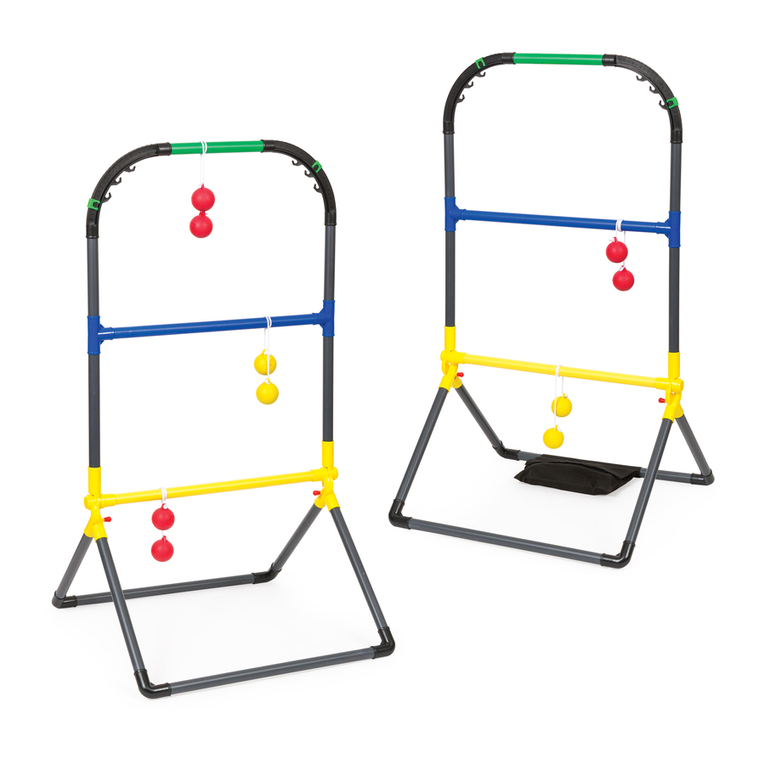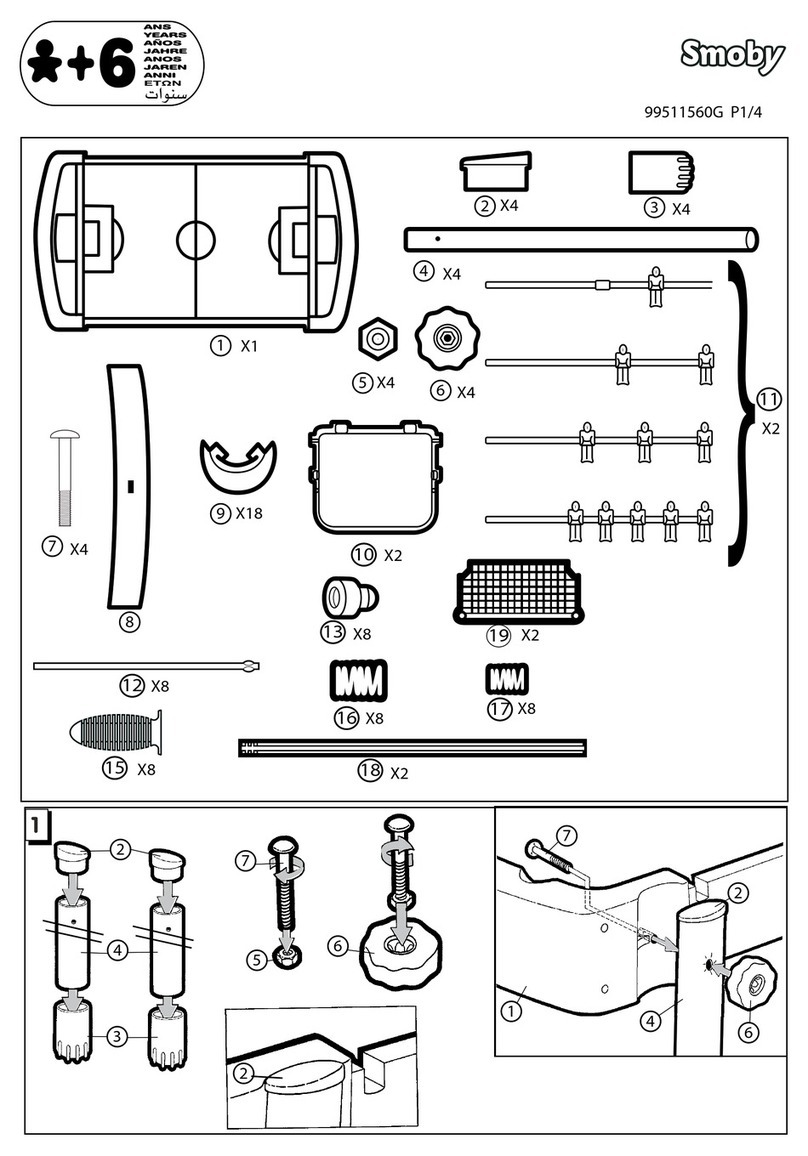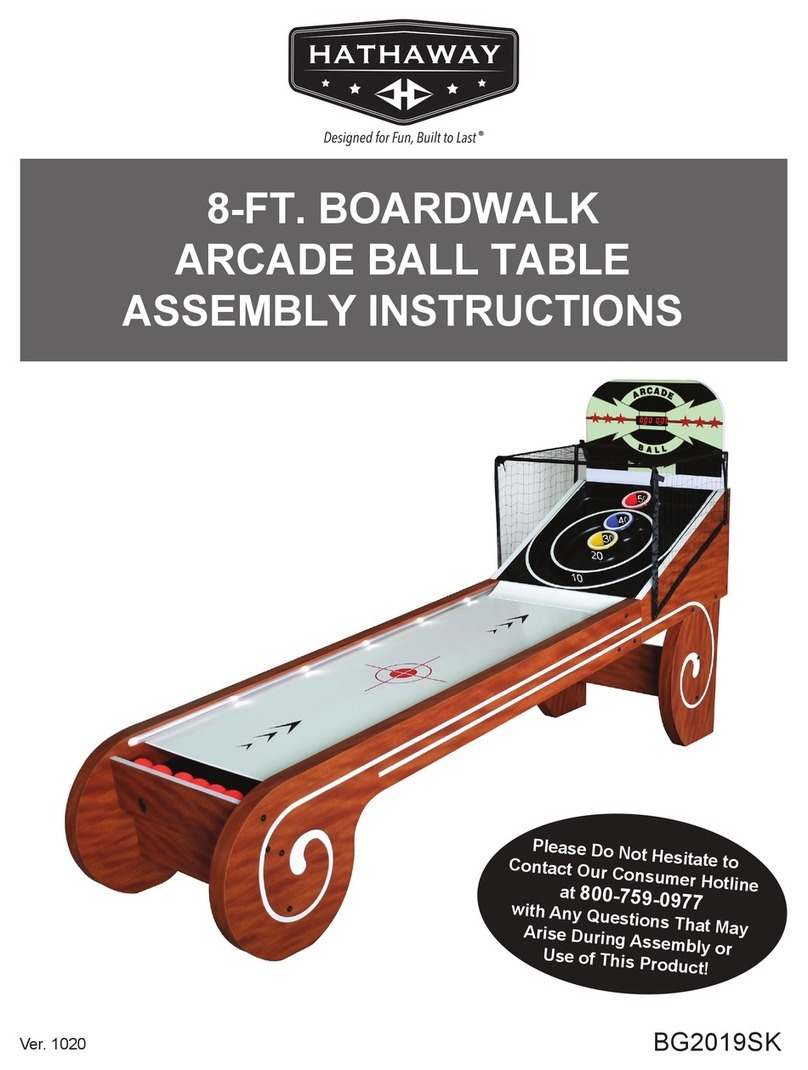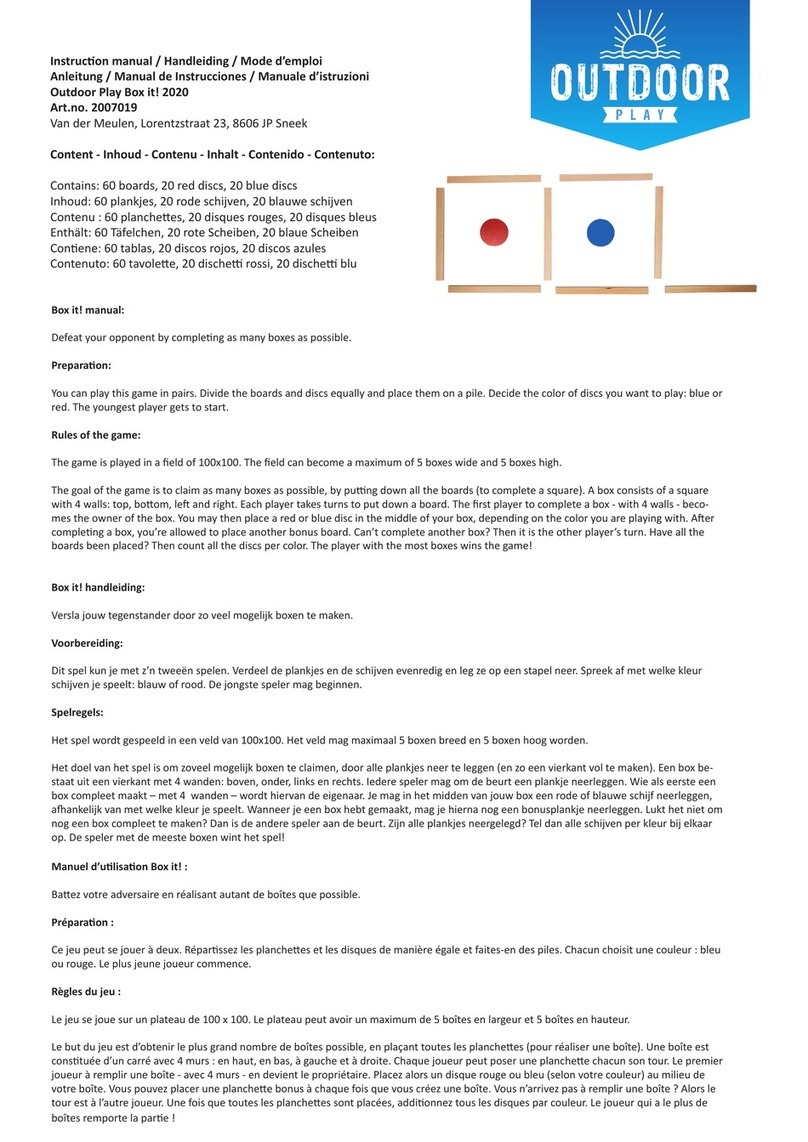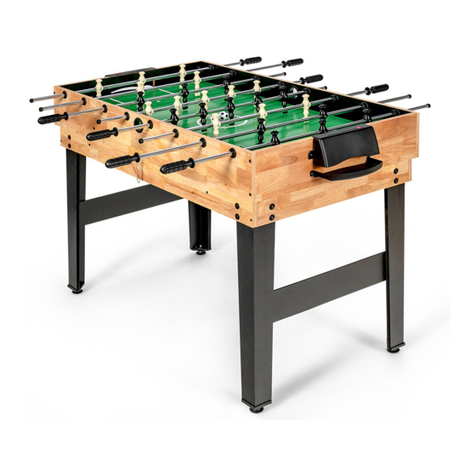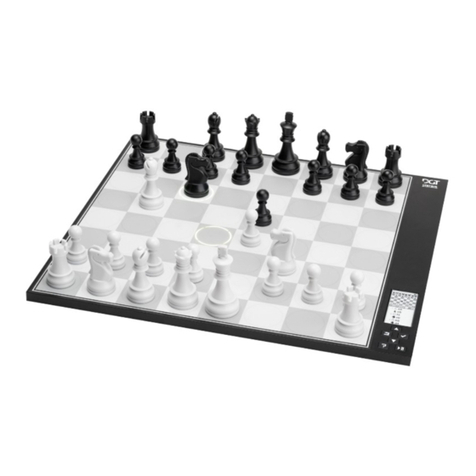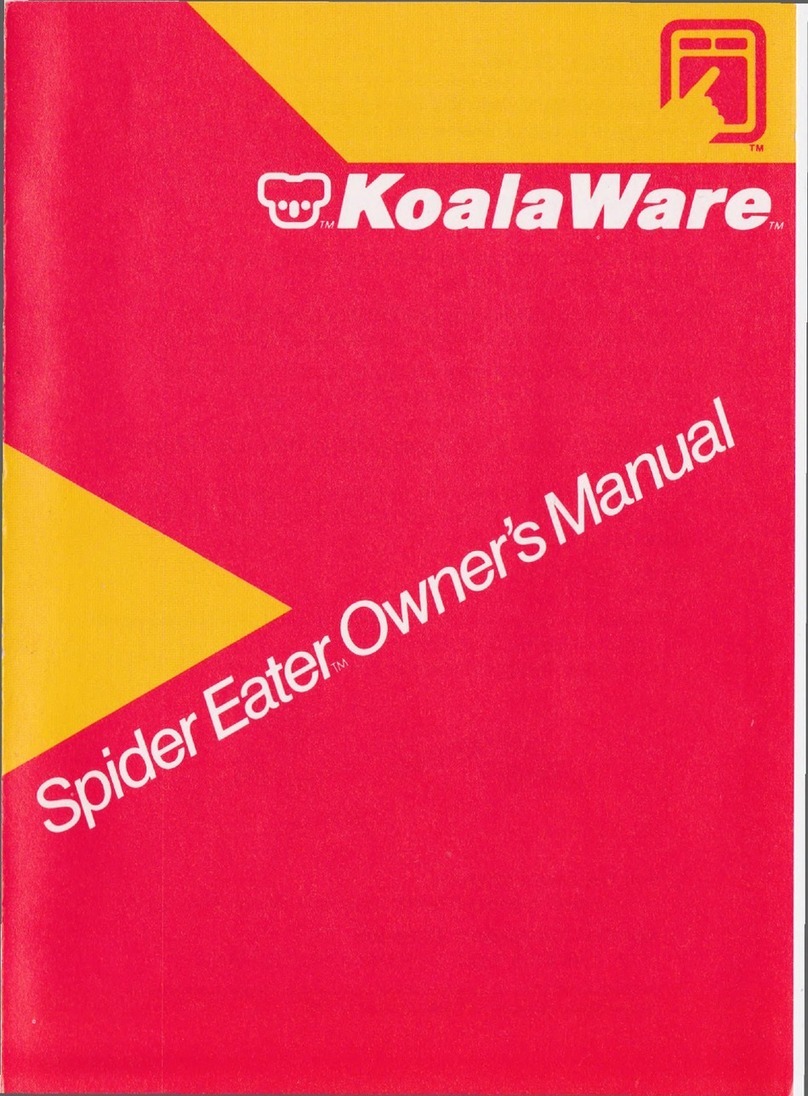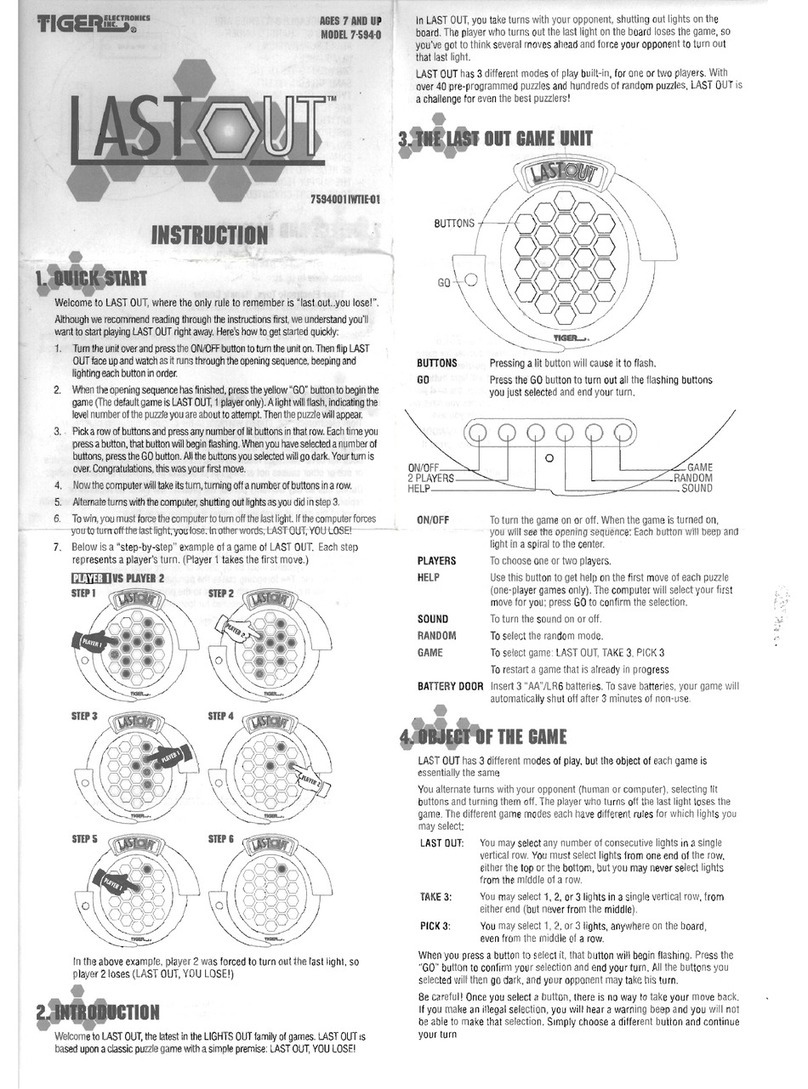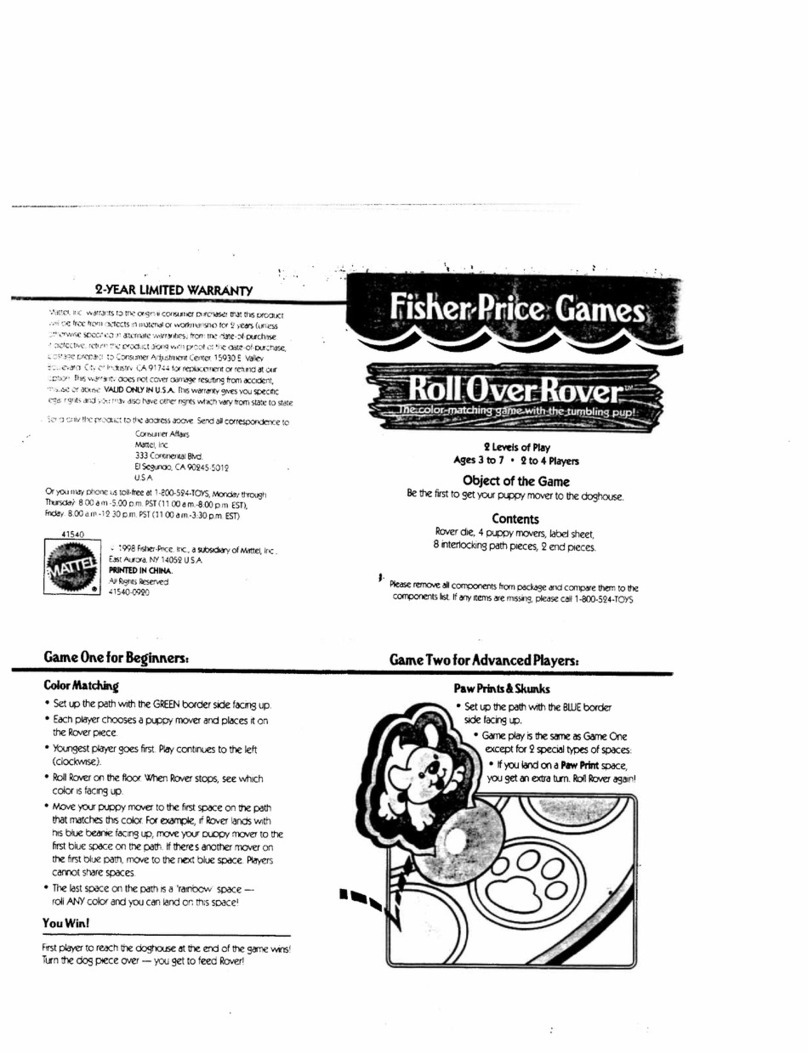
How to Play
7
Magic World Quick-Start
Once you’ve played a game or two, you will
probably want to take a look at the full rules
for Magic World, which are available from any
good game store, most large bookstores, or di-
rectly from us at www.chaosium.com. To cre-
ate your character, you will only need three
ordinary six-sided dice. To play the game, you
should invest in a full set of polyhedral dice.
At least one of 4, 6, 8, 10 and 20-sided dice
are needed to play the game.
A N
To play Magic World you need a character.
Characters in the game are called “Adventurers”
because they primarily spend their play time
exploring and adventuring in the regions and
dungeons of Magic World. It will be helpful for
you to have a piece of scratch paper handy, or
ideally a Magic World character sheet. There is
one located at the end of this PDF or you can
download one for free at www.chaosium.com.
Click on “Free Downloads” then “Character
Sheets, Keeper Forms, and more.”
e Primary Attributes
To begin, a Magic World character has seven
primary attributes:
Strength (STR) Strength measures an Adven-
turer’s muscle power. It shows how much some-
one can lift, push or pull, or how tightly he can
hold on. Strength decides if an Adventurer can
wield the heaviest hand weapons at full ability.
It is also a component in figuring the damage
bonus which may increase the effect of hand-
to-hand attacks.
Human STR cannot naturally exceed 21. An
Adventurer reduced to zero Strength is an in-
valid, unable to leave bed.
STRx5 is the Effort roll. Additionally, STR
influences Damage Bonus and Physical skills.
Constitution (CON) Constitution summarizes
the health, vigor, and vitality of an Adventurer.
Constitution helps calculate how well an Ad-
venturer resists drowning and suffocation, poi-
sons, diseases, and magic—which makes him
harder to kill.
If Constitution points are ever reduced to
zero, the Adventurer dies.
The Stamina roll is equal to CONx5. CON
influences Hit Points and Perception skills.
Dexterity (DEX) Higher Dexterity makes for a
quicker and more nimble Adventurer who has
potential for more activity in a round. A suc-
cessful DEX roll may prevent a fall, let an Ad-
venturer stand in a high wind, do a delicate
task, or take something without being noticed.
The multiplier DEXx5 is called the Agility
roll. DEX also influences an Adventurer’s reac-
tion speed in combat, and Manipulation skills.
Human DEX cannot normally exceed 21.
An Adventurer with zero DEX points is un-
able to accomplish any physical task without
also a successful Luck roll.
Example: Jeromyn the Thief needs to make an
Agility roll to ensure that he will be able to slide
under the closing door in time. His player, Krista,
wishes that she will roll below Jeromyn’s Agility
of 75%. She rolls a 52 on her percentile dice. Jero-
myn slides under the door safely.
Size (SIZ) The characteristic of Size repre-
sents the average of an Adventurer’s height and
weight. Can an Adventurer can see over some-
thing, or squeeze through a small opening, or
be seen in tall grass? This characteristic also
helps calculate the Adventurer’s Hit Points and
Damage Bonus. To show loss of one or more
limbs, decrease SIZ and DEX.
Human SIZ cannot be higher than 21. If
starving, loss of half or more of SIZ causes
Pre-Generated Characters
This adventure pack includes several pre-generated
characters to use for the adventure at the back of this
QuickStart PDF. It is suggested to use these charac-
ters for this adventure to allow new Magic World or
Basic Roleplaying players to begin their game right
away. If your group would like to create their own
characters, feel free to do so.

